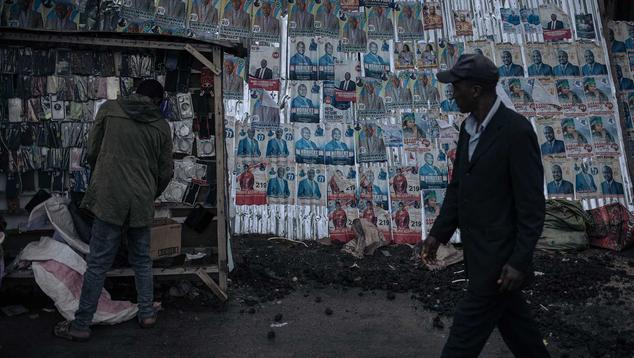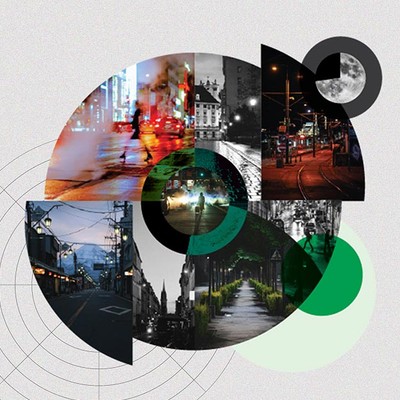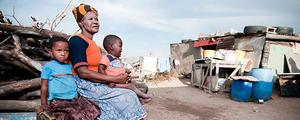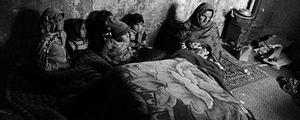Story Highlights
- Majorities struggle to afford basic necessities of food, shelter
- Almost half suffer from poor health
- Negative experiences soar to record highs
WASHINGTON, D.C. -- Congolese President Felix Tshisekedi was elected in 2019 in the country’s first peaceful transition of power. But amid widespread instability and conflict in the country’s east, questions hang over elections scheduled for Dec. 20.
Gallup surveys conducted in 2023 paint a picture of widespread inability to afford necessities such as food and shelter as violence has escalated in the eastern provinces and the number of internally displaced people has climbed to almost 7 million, as of October. Most Congolese are struggling to afford both food (78%) and shelter (59%), higher than most other countries in sub-Saharan Africa.
Vulnerability Rampant as People Struggle to Afford Basics
According to Gallup’s Basic Needs Vulnerability Index, which measures people’s ability to afford food and shelter and resilience of social safety nets, nearly nine in 10 adults in the Democratic Republic of the Congo (DRC) can be classified as highly or moderately vulnerable.
Thirty-eight percent are highly vulnerable, meaning they struggle to afford food or shelter and do not have family or friends who can help them in times of trouble. The prevalence of high vulnerability in the DRC is higher than across much of the rest of sub-Saharan Africa -- and a notable increase compared with 2022, when 32% of Congolese were highly vulnerable.
Half of Population Suffers From Poor Health
Nearly half of Congolese adults (48%) -- a new record high -- now suffer from health problems that prevent them from doing normal things for people their age. This percentage is among the highest measured by Gallup in any country since 2006.
The most vulnerable are suffering particularly from health problems: 59% of those classified as highly vulnerable suffer from health problems, compared with slightly over a third (36%) of those with low vulnerability.
With 0.4 doctors for every 1,000 people in the DRC, the country’s health systems are struggling to cope with this burden. More than twice as many Congolese are dissatisfied as satisfied with the availability of quality healthcare in their area (70% vs. 30%, respectively).
Negative Emotions Soar
Negative emotions have soared in the DRC over the past decade. The Negative Experience Index, a composite score of people experiencing daily worry, stress, anger, sadness and physical pain, reached a record high of 49 in 2023, more than double the country’s score in 2013 when it was at one of its lowest levels.
Much like with physical health problems, people considered highly vulnerable -- those unable to afford food or shelter, with no one to help them in an emergency -- are the most afflicted by negative emotions. They are significantly more likely than those ranked lower on the vulnerability scale to experience daily stress, sadness, worry, anger and physical pain.
Personal Safety Elusive for Majority in DRC
Personal safety is also a key issue in the DRC. A majority of Congolese feel unsafe walking alone in their area at night (55%). With the exception of one year, this figure has never dropped below the majority level since 2009 (in years Gallup has been able to conduct surveys in the DRC).
Conflict has been rife for decades in the DRC, contributing to high levels of feeling unsafe. There are currently more than 100 armed groups active in the east of the country, where martial law has been introduced. Conflict between M23 rebels and government militias has intensified in recent months, triggering huge levels of internal displacement.
Much like in previous years, Gallup was not able to survey several parts of the country in 2023 due to insecurity -- many of which are in the east -- totaling 19% of the population.
Bottom Line
With almost 7 million people displaced internally, many of the DRC’s nearly 100 million residents are highly vulnerable and struggling to meet basic needs. Such widespread vulnerability not only affects people’s ability to afford necessities but also is related to worse physical and emotional health.
In the face of rising armed conflict and attacks on United Nations aid envoys in the east, as well as the International Organization for Migration struggling to raise sufficient funds to work effectively in the DRC, many are left waiting.
The winner of the coming election will face immense challenges in improving the lives of citizens in sub-Saharan Africa’s largest country and one of the most vulnerable populations in the world.
To stay up to date with the latest Gallup News insights and updates, follow us on X.
For complete methodology and specific survey dates, please review Gallup's Country Data Set details.
Learn more about how the Gallup World Poll works.




